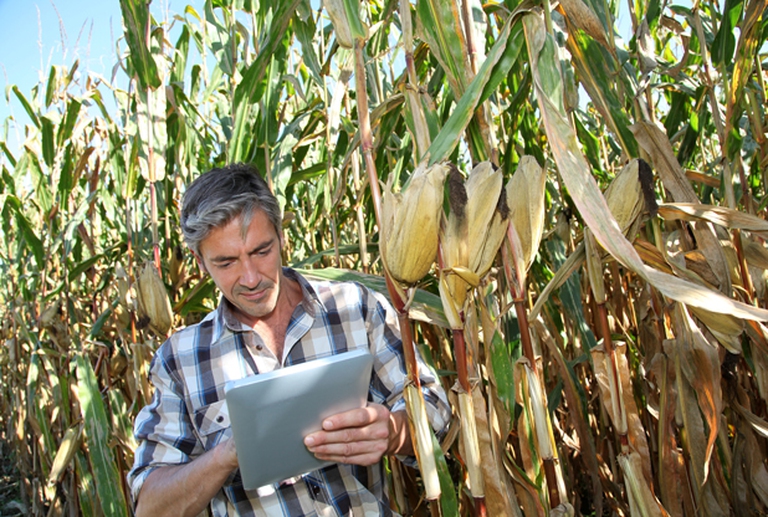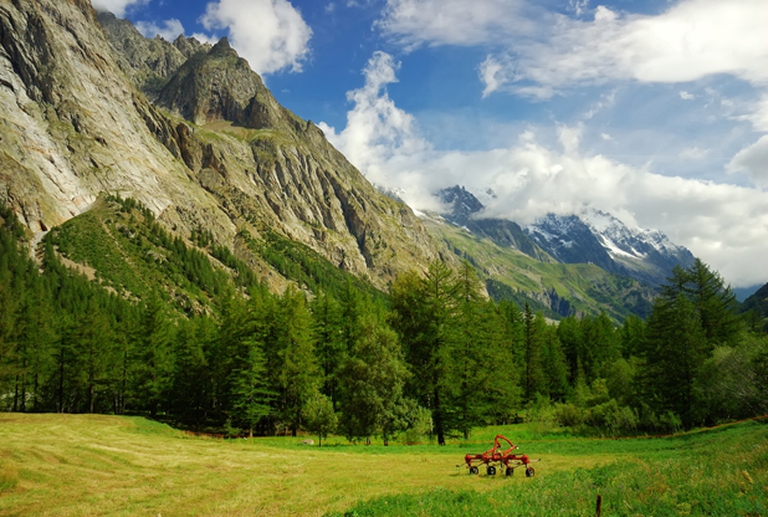
Factory farming conditions and antibiotic-resistant pathogens emerging as a result of them pose an existential threat to humans in the form of zoonotic diseases. Why it’s time to produce and consume food more thoughtfully.
Alongside the publication on the EU Official Journal of the EU Directive (2015/412) regarding the possibility for the Member States to restrict or prohibit the cultivation of genetically modified organisms (GMOs) in their territory, a survey carried out by Coldiretti (National Small Farmers’ Confederation) shows that lands sown with biotech seeds decreased by 3% in
Alongside the publication on the EU Official Journal of the EU Directive (2015/412) regarding the possibility for the Member States to restrict or prohibit the cultivation of genetically modified organisms (GMOs) in their territory, a survey carried out by Coldiretti (National Small Farmers’ Confederation) shows that lands sown with biotech seeds decreased by 3% in Europe. This is a demonstration of consumers’ growing scepticism towards biotechnologies in agriculture.

Coldiretti points out that in 2014 the agricultural areas destined to GMO cultivation in Europe decreased to 143,016 hectares of Bt maize, limited to 5 Member States (out of 28). 92% of the Bt maize is cultivated in Spain, with 131,538 hectares. Other producers are Portugal, Romania, Slovakia and Czech Republic.
The normative requires that Member States favourable to GMO cultivation have to avoid contaminating the lands of neighbouring countries that prohibited the seeds. “We are approaching an awaited and important recognition of Member States’ sovereignty, despite the repeated pressures by biotech multinationals”, declared Roberto Moncalvo, president of Coldiretti. Member States have the possibility to ensure GMO-free cultivations, in order to protect their own extraordinary biodiversity.

Siamo anche su WhatsApp. Segui il canale ufficiale LifeGate per restare aggiornata, aggiornato sulle ultime notizie e sulle nostre attività.
![]()
Quest'opera è distribuita con Licenza Creative Commons Attribuzione - Non commerciale - Non opere derivate 4.0 Internazionale.
Factory farming conditions and antibiotic-resistant pathogens emerging as a result of them pose an existential threat to humans in the form of zoonotic diseases. Why it’s time to produce and consume food more thoughtfully.
The world of cinema recognises the link between food choices and the climate crisis by offering vegan menus for awards season events, including at the most important of them all: the Oscars.
Let’s look at the reasons behind the growth of veganism in India, as a small yet vocal section of the population turns towards this diet and lifestyle in the largest milk producing country in the world.
by Jeffrey Y. Campbell, Manager of the Forest and Farm Facility at FAO In the Ecuadorian Amazon, Kichwa farmers grow dozens of products on tiny parcels of land. Their lands hum with biodiversity, yielding nutritious foods that have sustained families for generations. Wandering among fruit and nut trees and crops, these indigenous agroforesters fill their baskets
Mint has many health benefits, but in food it’s often accompanied by artificial green colourings. Instead, Galatea has created a green mint ice cream in a completely natural way.
We’re talking about Galatea, a company that produces semi-finished products for artisanal ice creams using high quality ingredients, natural colouring, excluding thickeners and hydrogenated fats, respecting the environment and supporting the less fortunate.
The mad rush to fake food, like fake meat made with genetically-modified soy, ignores the importance of the diversity of our foods and culinary cultures. It’s a recipe to accelerate the destruction of the Planet and our health.
Like with all foods, the quality of an ice cream can be discerned by reading its label. An expert explains how to do this, and tells us how their company steers clear of chemicals, using only natural ingredients to produce an excellent and “free” ice cream.
Quality ingredients, no artificial colouring and hydrogenated fats. These are the main features of a great ice cream. But what makes an ice cream parlour “good”, i.e. sustainable?







